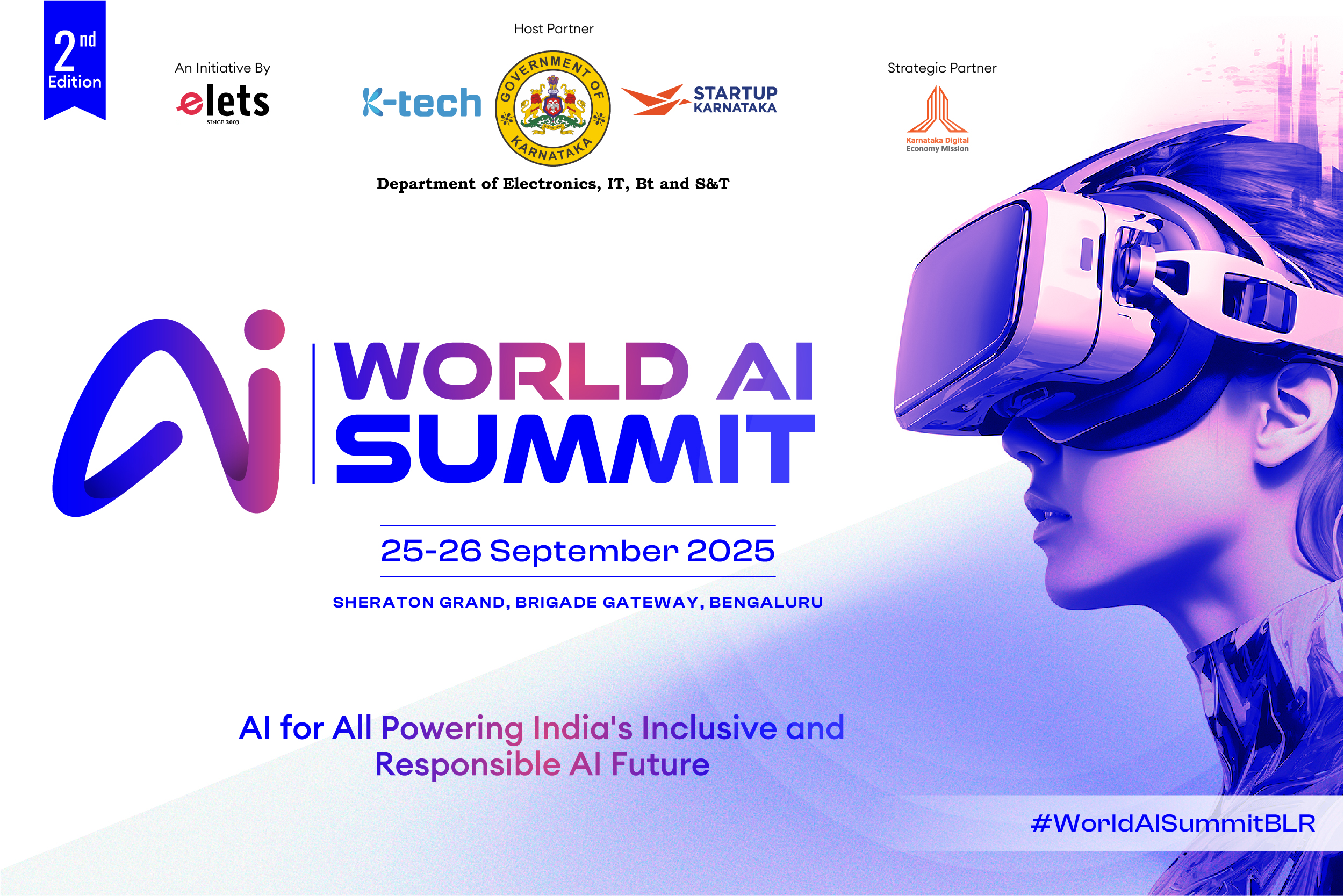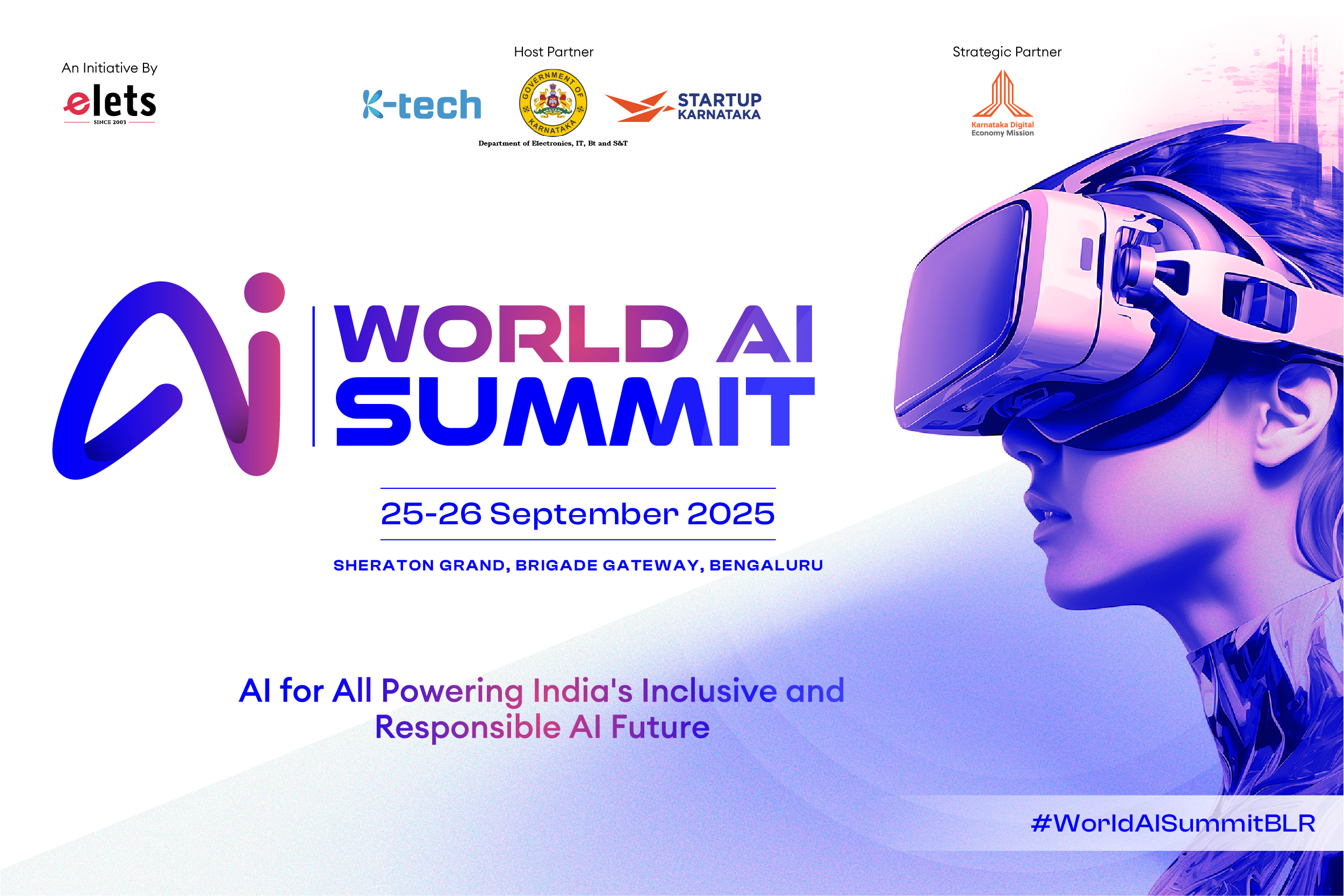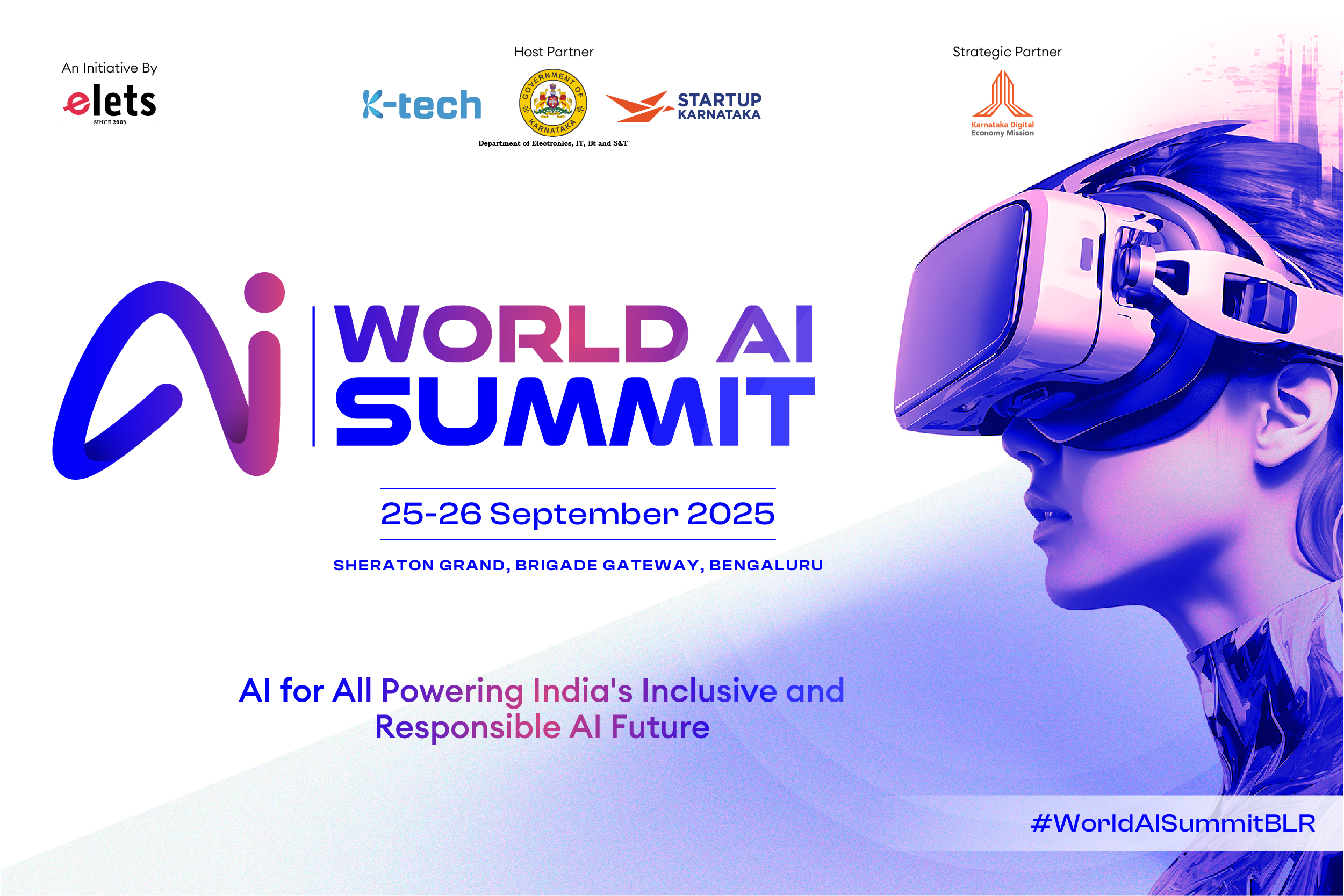
Data helps find patterns, understand what customers like, and make processes smoother. It is useful for stopping fraud, sending personalised messages, and improving customer service. By studying data, businesses can see trends, guess what might happen, and act quickly when things change. But they need to use data carefully, follow rules, and respect people’s privacy to keep trust. Using data well helps businesses understand their work better and find ways to grow. The 3rd Digital Natives Summit discussed how businesses in industries like finance, retail, and food, use data to improve their operations and make informed decisions.
Data Use and Privacy in Financial Services
“The services industry heavily depends on data, using it in various ways, ” said Jagdish Narayanan, Chief Technology Officer of Equifax India. He discussed how data is sensitive in the industry, particularly for tracking individual activities through financial transactions. He noted that this raises concerns about privacy and the need to set boundaries.

Equifax India, established in 2010, is a joint venture between Equifax Inc. and several Indian financial institutions. It provides credit information services, risk management tools, and analytical solutions to help lenders assess creditworthiness and manage risks.

Narayanan described the Reserve Bank of India’s (RBI) account aggregator system, which requires companies to specify the type of data being shared, its purpose, and the duration of its use. This framework helps ensure that data is not misused.

He also focused on fraud detection in digital banking. Fraud often goes unnoticed until it is too late, especially when stolen money moves quickly between accounts. Narayanan explained that geospatial and behavioural data are used to identify suspicious patterns, such as transactions made from distant locations in a short time. However, he added that data is sometimes not used effectively, as seen when irrelevant promotions are sent to customers.
He said, “Context is critical when deriving value from data. Beyond identifying patterns, integrating data with a deep understanding of the business and domain determines its true usefulness.”
Data Ethics and Consumer Trust
Gurjodhpal Singh, Chief Executive Officer of Tide, discussed the importance of using data ethically. Tide is a financial platform for small and medium businesses. Singh explained that India’s new data privacy law and existing payment regulations have introduced guidelines for data usage.
“Financial services is a regulated industry. Beyond laws and regulations, two points are important based on our experience. First, compliance with the law must go beyond just following the written rules; it must align with the law’s intent. Second, the end consumer must understand the value provided by using their data. Ultimately, it is their data,” he said.
He said transparency in data use is important to build trust, adding that businesses must ensure that data is handled carefully to comply with regulations and avoid losing consumer trust.
Data-Driven Decisions in the Food Industry
Jasmit Tibb, Managing Director of Tibbs Foods Private Limited, explained how data has shaped the food industry. He noted that 53 years ago, decisions were made based on word-of-mouth feedback, but now businesses use data to understand ordering habits and location-based preferences.
Tibb said that data is used to adjust recipes to match regional tastes. For example, the food preferences of customers in Mumbai differ from those in Andhra Pradesh. He shared that one of his industry peers uses cameras at ordering stations to study consumer behaviour, such as their choices and pricing expectations.
“For us, it’s about understanding habits and consumer needs. In the Quick Service Restaurant (QSR) industry, we are focused on refining data collection and analysis to ensure it drives our decision-making,” Tibb informed. He also highlighted the importance of respecting customer privacy. He explained that consumers need to feel secure when they share their information.
Data Analysis and Tools in Banking
“Data is what makes organisations run. Depending on what you do and where you work, the tools and technology you use with data can change, especially when dealing with AI and ML,” said Nirav Dalal, Vice President and Product Lead at Yes Bank. He spoke about the tools businesses use to analyse data. He explained that companies collect data to send personalised messages to customers, such as a discount notification sent when a customer is near a store.
Dalal mentioned tools like Tableau, which businesses use to analyse and manage data. He also explained how artificial intelligence (AI) and machine learning (ML) are used to predict customer preferences. These technologies help businesses send timely notifications or plan their next marketing steps.
Also Read :- Staying Ahead with AI Tactics for Digital Natives
Unified Data for Business Growth
Virendra Pal, Chief Data Science Officer at LenDenClub, discussed how businesses benefit from having a single system to store all their data. He explained that this allows companies to calculate customer engagement and identify trends.
“Many discussions now focus on hyperpersonalisation,” he stated. “In this context, if I want to learn more about a customer or understand increased traffic, I can identify what influenced them or caused the traffic increase. This is possible if we have accurate data stored in a well-defined data structure.”
Pal said that timely analysis is critical. He noted that if businesses take several days to process data, it may no longer be relevant. Advanced algorithms and computing power, he explained, enable companies to analyse data and act on insights within hours, giving them a competitive edge.
Retail Metrics for Business Decisions
Rajgopal Nayak, Chief Technology Officer at Metro Brands Limited, focused on the use of data in retail. He explained that retailers monitor metrics such as profitability and same-store growth to evaluate their performance.
“Retailers generally have access to sufficient amounts of data collected from various sources, such as sales transactions, inventory records, and customer interactions. However, the outcome depends on how efficiently this data is analysed and how effectively the insights are implemented into actionable strategies,” said Nayak.
Moderator’s Summary on the Role of Data
“In the past, the limited availability of technology made it difficult to extract such insights or use them effectively. However, with advancements in technology, it has become significantly easier for businesses to analyse their data, derive meaningful insights, and take actionable decisions based on those insights,” said Sudipta Ghosh, Partner at PwC, while moderating the panel. He explained that advances in technology allow businesses to analyse their data more effectively and make decisions based on specific insights.
The panel discussion showed that using data well depends on clear goals, strong systems, and responsible practices. Businesses need to balance the benefits of data with the need for privacy and trust. By focusing on ethics, proper tools, and quick action, companies can make data work for them while meeting the expectations of customers and regulators, helping them stay competitive and plan for long-term success.
Be a part of Elets Collaborative Initiatives. Join Us for Upcoming Events and explore business opportunities. Like us on Facebook , connect with us on LinkedIn and follow us on Twitter.
"Exciting news! Elets technomedia is now on WhatsApp Channels Subscribe today by clicking the link and stay updated with the latest insights!" Click here!











